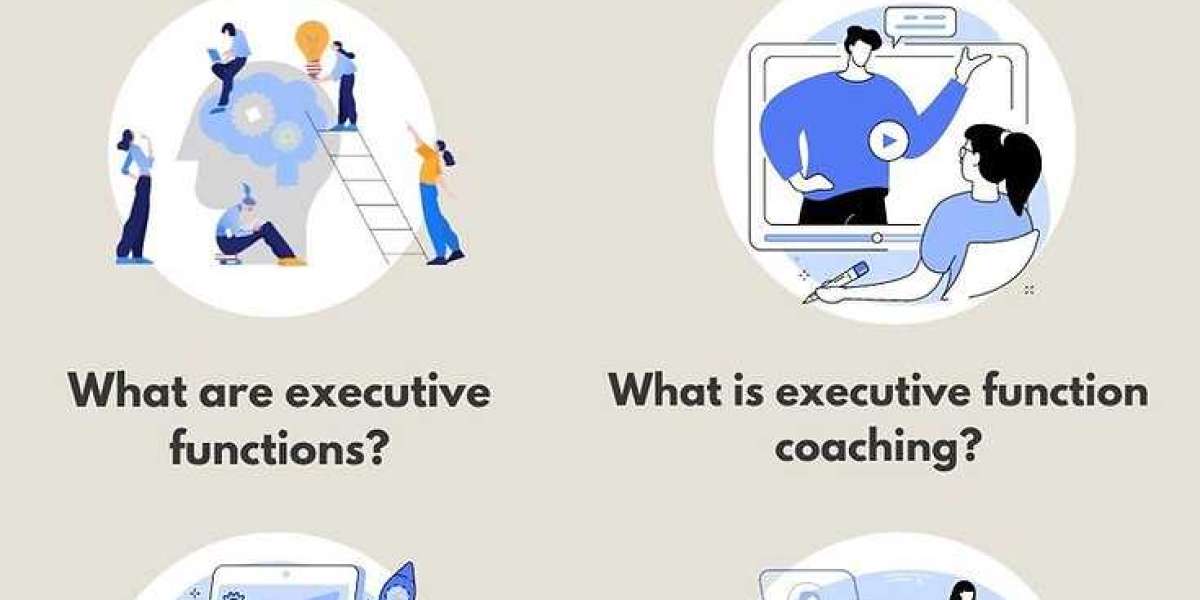If you're considering a career in coaching or looking to specialize further, executive functioning coach training can be a rewarding path. This blog will explore what executive functioning coaching is, the training required to become an executive functioning coach, and how you can make a difference in people's lives by mastering this skill.
What is Executive Functioning?
Executive functioning is a set of mental skills that help people manage their time, stay organized, and control their behaviors. These skills are essential for success in everyday life and work, especially in roles requiring problem-solving, planning, and multitasking. Some of the core aspects of executive functioning include:
- Working Memory: The ability to hold and manipulate information in your mind.
- Inhibitory Control: The ability to control impulses and resist distractions.
- Cognitive Flexibility: The ability to adapt to changing circumstances and think creatively.
While many individuals naturally develop strong executive functioning skills, others—such as those with ADHD, learning disabilities, or executive dysfunction—may need help. This is where an executive functioning coach comes in.
What Does an Executive Functioning Coach Do?
An executive functioning coach works with individuals to develop and strengthen these essential skills. Through personalized coaching strategies, they help clients create systems for organization, improve focus, enhance problem-solving abilities, and develop better time management.
Coaches provide practical tools and strategies that clients can implement in their daily lives, empowering them to become more self-reliant and successful in both academic and professional settings. Whether working with students, professionals, or individuals with ADHD, executive functioning coaches offer tailored support based on each person’s unique challenges and goals.
Executive Functioning Coach Training: Key Components
Becoming an executive functioning coach requires specialized training to understand the complexities of cognitive processes and how to effectively coach individuals struggling with them. Here are some key components of executive functioning coach training:
- Understanding Executive Functioning
Training begins with a deep dive into the fundamentals of executive functioning. Coaches must understand how these cognitive processes work, how deficits in executive functioning manifest, and how they impact individuals in various contexts—whether in school, work, or daily life.
- Assessment and Evaluation
Effective executive functioning coaching starts with a thorough assessment of the client’s strengths and weaknesses. Training programs teach coaches how to evaluate their clients' current executive functioning abilities, identify areas of difficulty, and create a tailored coaching plan to address those challenges.
- Coaching Techniques and Strategies
Executive functioning coach training covers a wide range of evidence-based strategies designed to help clients build their cognitive skills. These may include time management techniques, task prioritization methods, working memory exercises, and behavioral interventions to improve focus and self-control. Coaches learn how to teach these strategies in a practical, engaging way that resonates with their clients.
- Goal-Setting and Accountability
A critical part of executive functioning coaching is helping clients set realistic, achievable goals and holding them accountable for progress. Training programs often focus on techniques for motivating clients, tracking their progress, and providing constructive feedback.
- Coaching for Different Populations
Executive functioning issues can affect people of all ages, from students struggling with schoolwork to adults managing professional responsibilities. Effective training programs prepare coaches to work with diverse populations, including children, teens, college students, professionals, and individuals with ADHD or other cognitive challenges. Tailoring coaching techniques to each individual’s needs is a key skill taught in training.
- Building a Coaching Practice
Many executive functioning coach training programs also cover the practical aspects of starting and running a coaching business. This includes marketing strategies, client acquisition, business management, and developing a strong personal brand as an executive functioning coach.
Who Should Consider Executive Functioning Coach Training?
Teachers and Educators: Educators who work closely with students can benefit from executive functioning training, enabling them to provide more targeted support in the classroom and help students develop strong study habits and organizational skills.
Mental Health Professionals: Psychologists, counselors, and therapists may incorporate executive functioning coaching into their practice, offering additional tools to clients struggling with cognitive challenges.
Life Coaches and Executive Coaches: Professionals already working in coaching may expand their expertise by focusing on executive functioning, opening up opportunities to work with a broader range of clients.
Parents of Children with ADHD: Parents of children with executive functioning issues often seek training to better support their child's development and create a more structured, supportive environment at home.
Benefits of Becoming an Executive Functioning Coach
- Making a Positive Impact
Executive functioning coaches play a vital role in helping individuals overcome challenges that impact their personal and professional lives. By helping clients build self-management skills, you empower them to achieve their goals and live more fulfilling lives.
- High Demand for Services
With the increasing recognition of the importance of executive functioning, there is growing demand for coaches who specialize in this area. Whether working in educational settings, private practice, or corporate environments, executive functioning coaches are well-positioned to make a significant impact.
- Diverse Career Opportunities
Executive functioning coaches can work with a wide range of clients, from students and professionals to entrepreneurs and executives. This diversity of clients allows for a fulfilling career with varied coaching experiences and challenges.
Where to Find Executive Functioning Coach Training Programs
There are numerous training programs available, both online and in-person, that offer certification in executive functioning coaching. Some popular options include:
The ADD Coach Academy (ADDCA): Offers a comprehensive training program for coaches working with individuals with ADHD and executive functioning challenges.
International Coach Federation (ICF): Provides globally recognized certification for all types of coaches, including those focusing on executive functioning.
Children’s Mind Institute: Specializes in training coaches to work with children and adolescents with executive functioning challenges.
Conclusion
Becoming an executive functioning coach is a rewarding career path that allows you to make a meaningful difference in the lives of individuals struggling with cognitive challenges. With the right training, you can develop the skills needed to help clients improve their executive functioning, achieve their goals, and lead more productive lives.
If you're passionate about helping others and eager to specialize in a growing field, executive functioning coach training could be the next step in your coaching journey. At Hey Coach Dave, we emphasize the importance of understanding executive functioning and integrating it into your coaching practice. Let us guide you in becoming an effective executive functioning coach, ready to inspire and empower your clients.








